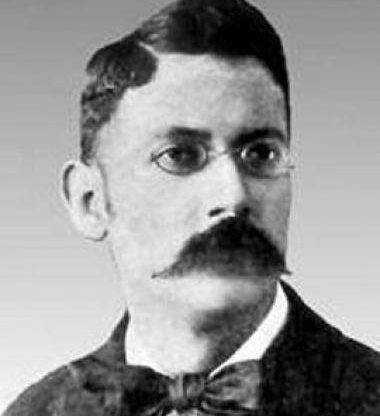Time is the great memory challenger. He is "the implacable", as he is often called with resignation. But time has the great advantage of putting "things" in their place, beyond fashions, modes and opinions. So do not be discouraged reader, because time, despite all the above, is, in addition to being relentless, the greatest of vigilantes. Our Poet of the flag , Bonifacio Byrne from Matanzas , whose birth is 160 years old, is one of the cases that neither time, forgetfulness, nor the fallen rain have been able to blur his status as a distinguished personality of Cuban letters.
Patriotism is an outstanding trait in his personality. When the War of 95 broke out and colonial oppression intensified, the poet's voice of protest broke out, writing a sonnet dedicated to the patriot Domingo Mujica , shot by the colonial authorities in August 1895. The verses circulate through the city, the retaliation does not is made to wait and Byrne has to emigrate to Tampa , in the United States, from where he continues his work in favor of independence as he works as a reader of tobacco shops and collaborates in the newspaper Patria founded by José Martí , as well as in El Porvenir and in The Expeditionary .
He is at that time the poet of war , as he is known from the appearance in Philadelphia of his book Efigies , composed of patriotic sonnets, which includes poems dedicated to Carlos Manuel de Céspedes , Ignacio Agramonte , José and Antonio Maceo , to Calixto García ... The lyrical of the first times has become the singing poet of freedom.
There it is taken by the end of the war against Spain and the poet decides to return from exile. In January 1899 he embarks on the Mascotte steamer and, excited, his eyes do nothing but search for the coast, whose silhouette is still beginning to be seen in the distance. It is then when he distinguishes, at the height of Castillo del Morro , as a symbol of the new power that governs the destinies of the homeland, the American flag. It is said that from that sad experience his verses "My flag" sprouted, in which he sums up the frustrated desire for independence and sovereignty of a people.
Returning from a distant shore,
with my soul in mourning and gloom,
I eagerly searched for my flag
, and I have seen another besides mine!
Where is my Cuban flag,
the most beautiful flag that exists?
I saw her from the ship this morning,
and I have not seen a sadder thing!
Once he disembarked, on January 4, he wrote the poem "My Flag", first published in the Matanzas press in May. The poem is included in the book Lyre and sword.
Little known, although it dates from 1903, is his poem entitled " The Platt Amendment ":
It is the fatal and barbarous coyunda,
which presses the throat of the Cuban,
frightens the universal conscience
and the heart floods with sadness.
Byrne also cultivated the theater and the narrative, within this he left in preparation the novel Daughters and sons-in-law , the storybook Small Letter and a text of poems. For his compatriots it was a paradigm of honor and patriotic love. Eminent son of the city of Matanzas , in 1920 the Second School students paid for the placement of a plaque in the poet's birthplace. Also that year, by public cost, the house was acquired, which was donated to the poet. He died in his native Matanzas on July 5, 1936, the place where he was born on March 3, 1861 and where, from a young age, he was motivated by literary creation. He first directed the steps towards journalism, founded in 1890 the newspaper La Mañanaand three years later his book Eccentrics appeared .
Although languid and sad she trembles,
my ambition is that the Sun, with its fire,
illuminate her alone, her alone!
in the plain, in the sea and on the summit.
If broken into small pieces it
becomes my flag one day ...
our dead, raising their arms, will
still know how to defend it! ...


Deje un comentario